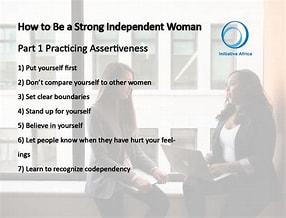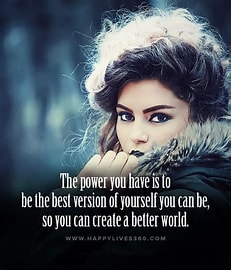Strong Independent Woman Trope
Introduction
In today’s cultural landscape, the “strong independent woman” trope has become a celebrated ideal, often portrayed in media as the epitome of female empowerment. This archetype embodies a woman who is self-sufficient, resilient, and capable of overcoming any obstacle without assistance. While this portrayal can be inspiring, it also raises questions about the pressure it places on real women to embody these traits at all times. Is this ideal doing more harm than good? In this article, we’ll delve into the complexities of the strong independent woman trope, examining its origins, implications, and the societal expectations it reinforces.

The Origins of the Strong Independent Woman Trope
Historical Context
The strong independent woman trope has roots in feminist movements that emerged in the late 19th and early 20th centuries. As women fought for their rights—be it suffrage, education, or employment—figures emerged in literature and media that embodied these ideals. Characters like Jane Eyre and Elizabeth Bennet showcased women who defied societal norms and sought independence.
Modern Interpretations
Fast forward to today, and we see this trope manifesting in various forms across films, television shows, and literature. From Katniss Everdeen in The Hunger Games to Jessica Jones in her eponymous series, these characters are often depicted as fierce warriors who rely solely on themselves to navigate their worlds. While these portrayals can be empowering, they also present a narrow definition of strength.
The Pressure to Conform
Unrealistic Expectations
The portrayal of strong independent women can create unrealistic expectations for real women. Society often equates strength with emotional stoicism and self-sufficiency, leaving little room for vulnerability or dependence on others. This can lead to feelings of inadequacy among those who don’t fit this mold.
The Fear of Judgment
Women who don’t embody the strong independent woman ideal may face judgment or criticism. This pressure can discourage them from seeking help or expressing their emotions, leading to a culture where vulnerability is seen as weakness. The fear of being labeled as “weak” can be stifling.
The Harmful Implications of the Trope
Reinforcing Gender Norms
Ironically, while the strong independent woman trope aims to empower women, it can reinforce traditional gender norms by suggesting that true strength must be masculine in nature. This perspective overlooks the diverse ways women can express strength—through empathy, nurturing, and collaboration.
Marginalizing Other Experiences
The focus on a singular narrative of strength can marginalize other experiences of womanhood. Women who choose traditional roles—such as motherhood or caregiving—may feel devalued or pressured to conform to an ideal that doesn’t resonate with them. This exclusion creates a divide among women rather than fostering solidarity.

The Emotional Toll
Mental Health Challenges
The pressure to live up to the strong independent woman ideal can take a toll on mental health. Women may experience anxiety or depression stemming from feelings of inadequacy when they fail to meet these societal expectations. The constant need to project an image of strength can lead to emotional exhaustion.
The Importance of Vulnerability
Embracing vulnerability is crucial for mental well-being. Women should feel empowered to express their emotions and seek support without fear of judgment. Acknowledging that everyone has moments of weakness is essential for fostering genuine connections and promoting mental health.
Redefining Strength
Embracing Diverse Narratives
To combat the limitations imposed by the strong independent woman trope, it’s essential to embrace diverse narratives that celebrate different forms of strength. Women should be portrayed as multifaceted individuals who can be both strong and vulnerable, independent yet collaborative.

Celebrating Interdependence
Strength does not solely lie in independence; it can also be found in interdependence. Recognizing that relying on others is not a sign of weakness but rather a testament to one’s strength can help redefine societal perceptions of womanhood.
The Role of Media Representation
Changing the Narrative
Media plays a significant role in shaping societal perceptions. By diversifying the portrayal of women in film and literature—showcasing characters who embody various forms of strength—we can challenge harmful stereotypes and encourage more inclusive narratives.
The Power of Authenticity
Authentic representation matters. When women see themselves reflected in diverse roles—whether as caregivers, leaders, or everyday heroes—they are more likely to embrace their own unique paths without feeling pressured to conform to a singular ideal.
Conclusion
The strong independent woman trope has undoubtedly opened doors for discussions about female empowerment; however, it also poses significant challenges that warrant critical examination. By acknowledging its limitations and embracing diverse narratives that celebrate all forms of strength, we can foster a more inclusive understanding of womanhood that empowers rather than confines. Ultimately, true empowerment lies not in fitting into a predefined mold but in embracing our unique identities and experiences.
FAQs
1. What is the strong independent woman trope?
The strong independent woman trope refers to a character archetype often portrayed in media as self-sufficient and resilient, capable of overcoming challenges without assistance.
2. Why is this trope considered harmful?
This trope can create unrealistic expectations for women to always be strong and self-reliant, leading to feelings of inadequacy among those who don’t fit this mold.
3. How does this trope affect mental health?
The pressure to conform to the strong independent woman ideal can lead to anxiety and depression due to feelings of inadequacy when individuals fail to meet societal expectations.
4. What are some alternative narratives for female characters?
Alternative narratives include portraying women as multifaceted individuals who exhibit various forms of strength—such as empathy, collaboration, and vulnerability—rather than solely focusing on independence.
5. How can media representation improve?
Media representation can improve by showcasing diverse portrayals of women that reflect their varied experiences and strengths while challenging traditional stereotypes associated with femininity.



is she the only strong independent woman
It a good thing if women can be undependable ,but it might later on curse ego or pride which will make them see the self as the best or the most right and can cause issue between married and non married couple,and also in the society
I really like this your comment, if the right knowledge about SIWT can be passed to women then we are good to go